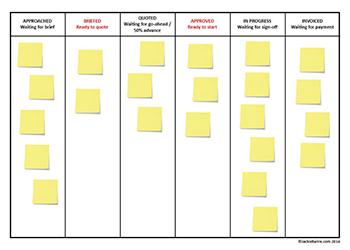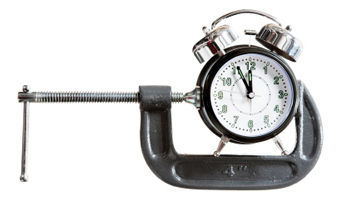

Good cash management is vital to business success and in difficult times the very survival of the business can depend on the timing of receipts and payments.
Very often the key tasks associated with day-to-day cash flows are undertaken by junior staff in administration roles, so those employees need to be carefully managed and motivated to perform well.
The process often starts with contract administration and whilst the big contracts are usually managed by senior staff, the principal interface with customers for smaller orders and repeat business is often a contract clerk. A good clerk will understand the implications of contract terms on cash flow and will be vigilant to a customers proposed payment terms, invoice timetable and supporting documentation. Any clauses that represent a departure from normal terms or be difficult to implement should be flagged for immediate attention. Many invoices and requests for payment are delayed purely because of a lack of information on the invoice that was specified by the customer at the outset.
Managers have a responsibility to encourage intervention by junior staff if they spot something wrong and should not be critical if it delays the contract award or order placement. Obviously, the acceptance of a customers contract terms is a commercial judgement, but if the implications are not clearly understood at the outset or the agreed procedures are not followed diligently then it will impact on cash receipts at some point down the line. If it is company policy to request a written order before commencing work then contract administrators should not be undermined if they intervene to stop operational staff commencing work until the order is confirmed. Even in a tough economic environment (or perhaps because of it) there is no point in undertaking work if you cannot be sure you will get paid for it and working without proper authorisation is the first cardinal sin.
Because it is such an important interface, staff in contract administration should be encouraged to develop a good relationship with customers and be organised in such a way that the same staff deal with the same customers on a regular basis so that they get to know their opposite number. This will make contact between them easier and, if problems do arise, the relationship can help to identify problems early, resolve matters promptly and avoid stress in the commercial relationship between the two organisations.
The same is true with credit control and debt collection. Good relationships between sales ledger clerks and their opposite numbers should be encouraged. This will make it easier to have a proactive relationship and permit the sales ledger clerk to telephone the customer in advance of the due date to check that there are no problems with any invoices and to obtain the amount that has been authorised for payment, a figure that can then be slotted into the cash forecast. There is nothing worse than waiting for a receipt that never arrives and nobody knows there is a problem until it is too late.
If you have done a good job for a customer then you deserve to be paid for it on time, if you havent done a good job then you need to be told about it straight away. Encourage your customers to tell you about any problems or issues that could delay payment as soon as they become aware of them. If you have done a good job and you still dont get paid on time then use those staff relationships to find out what is happening and if necessary implement your credit control procedures quickly and decisively or your exposure will rise with every successive invoice.
Be alert to staff changes in either organisation because a simple misunderstanding may quickly become a cash flow problem that will be difficult to resolve if the person dealing with it leaves or is replaced. Be particularly vigilant to successive "temps" in the customer organisation if receipts become irregular or start to falter, as it can be a sign that money is tight and admin staff are fed-up handing irate suppliers and leaving without being replaced by permanent staff.
On the payments side there can be a temptation to delay payments to suppliers to balance the books in the belief that this is "good" cash management. If this happens on a regular basis because it offsets the inefficiencies in your cash collection procedures then it is a solution, but it can mask the problem and should come with a health warning that suppliers may charge more for continuous late payment or even withhold supplies, which could disrupt your operations or cause wider concerns about the health of your business. If you want additional time to pay then a more acceptable method would be to negotiate this as part of the supply package and then adhere to the agreed terms. If cash is tight then it may be tempting to delay payment to smaller suppliers, but you risk a larger number of follow-up calls than if you delayed one payment of the same amount in aggregate. Also, the small suppliers are probably more vulnerable to cash flow problems through late payment.
Ensuring a healthy cash flow is a key management responsibility and the companies that do it best are those that recognise its importance and incorporate sound cash management principles into their targets and associated reward systems.
Bank balances, debtor days and average daily / weekly receipts are not only useful planning and budget targets for the company as a whole, but also a good working measure for the effectiveness of staff in the finance and contract administration departments. They are easily implemented and contribute to a healthy and progressive attitude to cash management that will permeate throughout the company if encouraged and supported from above.





As we cannot be experts in every relevant subject, we would love to receive 'guest' articles that may be of interest to anyone running their own business or thinking of doing so. ADD YOUR ARTICLE
